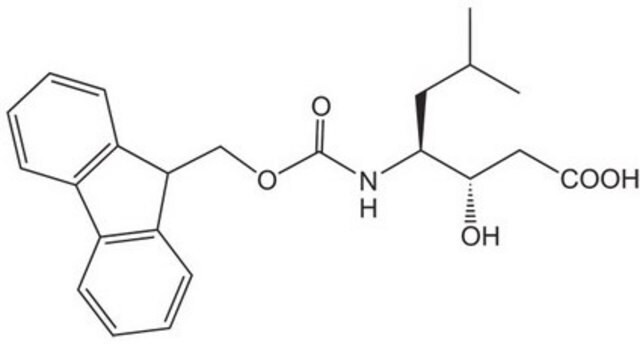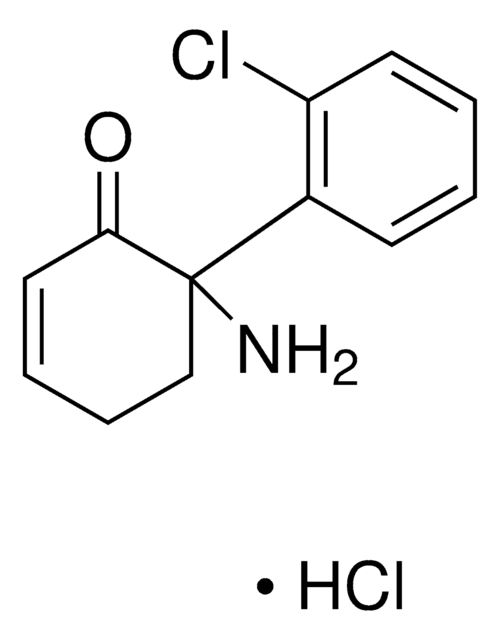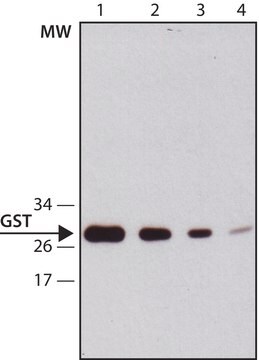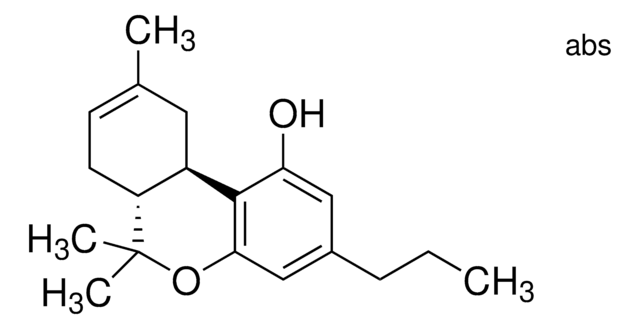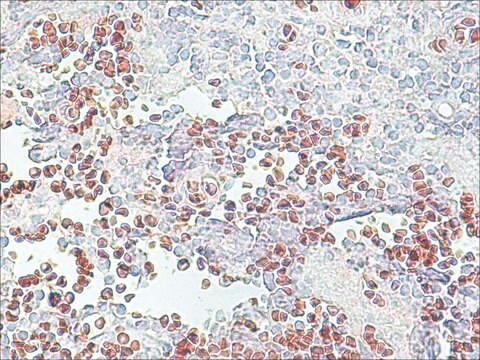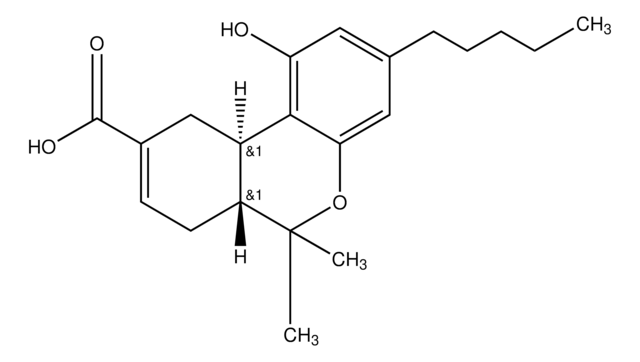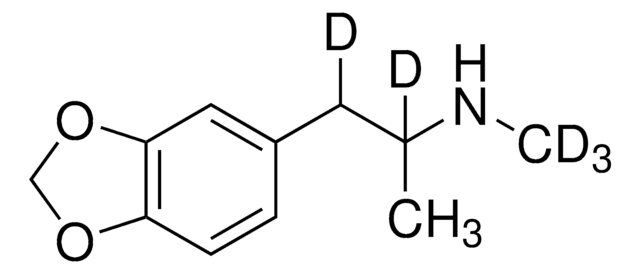H7909
HU-210
solid (air sensitive)
Synonyme(s) :
(6aR-trans-3-(1, 1-Dimethylheptyl)-6a,7,10,10a-tetrahydro-1-hydroxy-6,6-dimethyl-6H-dibenzo[b,d]pyran-9-methanol
About This Item
Produits recommandés
Forme
solid (air sensitive)
Niveau de qualité
Contrôle du médicament
USDEA Schedule I; stupéfiant (France); regulated under CDSA - not available from Sigma-Aldrich Canada
Conditions de stockage
desiccated
Solubilité
DMSO: soluble
Conditions d'expédition
wet ice
Température de stockage
−20°C
Chaîne SMILES
[H][C@@]12CC(CO)=CC[C@@]1([H])C(C)(C)Oc3cc(cc(O)c23)C(C)(C)CCCCCC
InChI
1S/C25H38O3/c1-6-7-8-9-12-24(2,3)18-14-21(27)23-19-13-17(16-26)10-11-20(19)25(4,5)28-22(23)15-18/h10,14-15,19-20,26-27H,6-9,11-13,16H2,1-5H3/t19-,20-/m1/s1
Clé InChI
SSQJFGMEZBFMNV-WOJBJXKFSA-N
Informations sur le gène
human ... CNR1(1268) , CNR2(1269)
rat ... Cnr1(25248)
Vous recherchez des produits similaires ? Visite Guide de comparaison des produits
Actions biochimiques/physiologiques
Caractéristiques et avantages
Code de la classe de stockage
11 - Combustible Solids
Classe de danger pour l'eau (WGK)
WGK 3
Point d'éclair (°F)
Not applicable
Point d'éclair (°C)
Not applicable
Équipement de protection individuelle
Eyeshields, Gloves, type N95 (US)
Certificats d'analyse (COA)
Recherchez un Certificats d'analyse (COA) en saisissant le numéro de lot du produit. Les numéros de lot figurent sur l'étiquette du produit après les mots "Lot" ou "Batch".
Déjà en possession de ce produit ?
Retrouvez la documentation relative aux produits que vous avez récemment achetés dans la Bibliothèque de documents.
Notre équipe de scientifiques dispose d'une expérience dans tous les secteurs de la recherche, notamment en sciences de la vie, science des matériaux, synthèse chimique, chromatographie, analyse et dans de nombreux autres domaines..
Contacter notre Service technique

